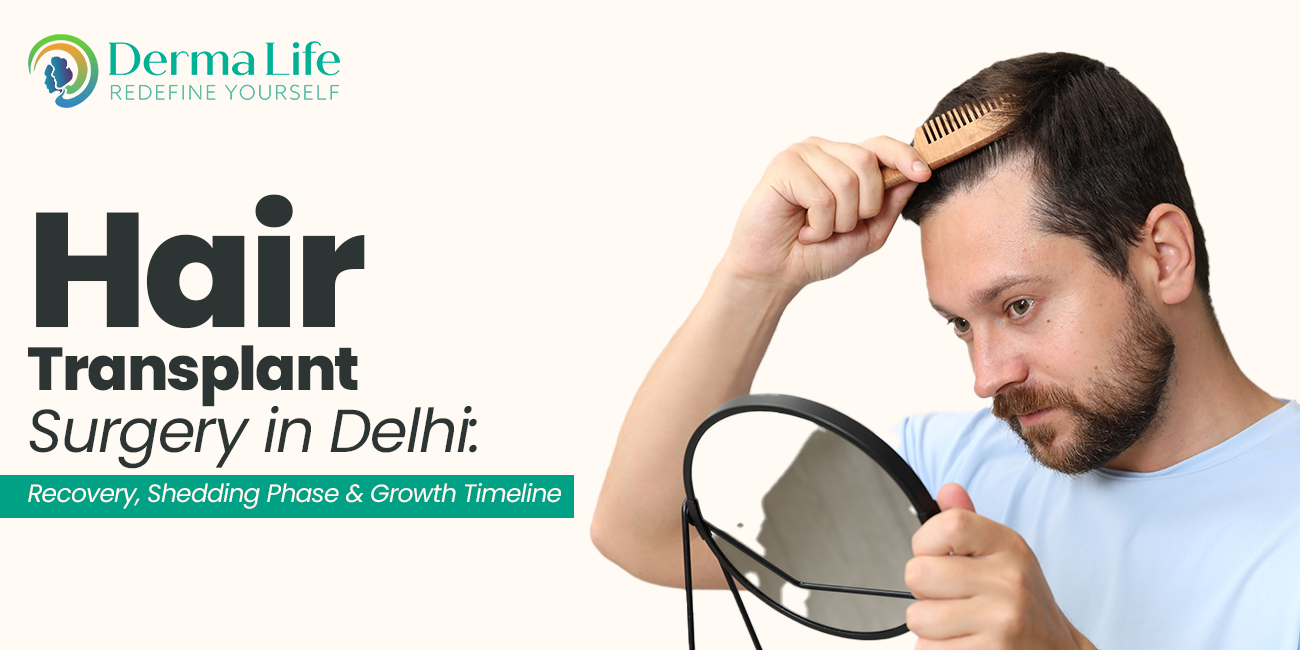Hair loss in winter is a common issue we all struggle with. From an erratic lifestyle to a lack of proper hair care, hair fall can happen for many reasons. While many of us rely on hair care products to solve this issue, some also fall prey to the common myths.
Extreme temperatures can adversely affect your hair. Not taking proper care during winter months can contribute to hair loss. The cold and dry winters lead to brittle hair. In winter, it is common to experience a flaky scalp that results in shedding.
If you observe that your hair is shedding like a malting cat at the onset of winter, don’t despair. Hair loss is one of the most common problems both men and women of all ages experience. It is an issue that negatively affects their quality of life.
It becomes more problematic when experiencing heightened levels of stress and changes in medication. Have you ever met someone who doesn’t have hair fall? It’s a rarity because losing a few hair strands daily is pretty normal.
11 Myths For Hair Loss In Winter
Winters in India can affect your hair growth negatively. Without proper care, hair can fall out quickly. Notwithstanding, many individuals have a certain number of misperceptions about treating their hair properly. Here are the top 11 myths debunked for hair loss in winter.
1. Vitamins, like Vitamin C, Benefit only your Immunity
The crucial functions of your body rely on vitamins, and hair follicles are no exception. During a cold, Vitamin C is essential in strengthening the immune system. Vitamin C can trigger hair growth during winter.
If you have recently undergone a boosted-FUE hair transplant, consuming foods rich in Vitamin C can help. It is also necessary to consume iron, niacin, and biotin during the colder months to guard against hair loss. You should adjust your diet and consume vitamin-enriched food items.
2. Cooler Temperatures Increase the Rate of Hair Loss
The hair follicles in the scalp undergo growth cycles. But cold weather boosts the process of hair loss is entirely false. Colder temperatures might trigger the scalp to hold on to hair strands. We tend to lose the least amount of hair during the colder months.
Therefore, if your hair feels thinner, there might be other reasons responsible. It is natural to shed 70 to 100 strands per day. However, it is essential to maintain your hair and scalp during winter.
3. It is Easy to Prevent Hair Loss in Winter by Using Styling Products
It is one of the most prevalent myths about hair loss in winter. Many people think that they can prevent hair loss by applying styling products. Many of these styling products contain harsh chemicals that can severely damage your hair growth.
In other words, they can aggravate the condition of hair loss in winter. Despite their popularity, cosmetic hair care products have high alcohol levels and sulfates. These constituents eliminate moistness from hair, thereby contributing to a dry and itchy scalp. During the colder months, your hair must retain moisture. Winter is the best time to maintain your hair and boost its growth.
4. Vigorous Oil Massage Can Reduce Hair Fall
It is a common myth that vigorous oil massage can decrease hair fall. During winters in India, it is a common practice among many households to apply oil to the scalp. Undoubtedly, applying oil to the scalp can be beneficial in hydrating the area.
But massaging vigorously can exacerbate the condition of hair fall. Proper oil massage can help you to de-stress effectively. It is also necessary to use the right type of hair oil is also essential to derive the maximum benefits. If you’ve recently undergone a FUT hair transplant, refrain from applying oil to your scalp. Your doctor will be the best person to advise you on using hair care products properly.
5. Hair Grows Faster if you Cut it during Winters
Many individuals tend to believe that their hair will grow faster if they trim or cut it. But cutting your hair only affects the shaft, not the follicle. People usually have a perception that cutting hair during winter will reduce split ends.
While this is true, cutting hair has no impact on its growth. Many experts suggest using proper hair care products to keep your scalp hydrated. The key to healthy hair growth during winter is a hydrated scalp.
6. Washing your Hair Daily can Cause Hair Fall
In certain states of India, winters are harsh. People have a wrong perception that washing your hair daily during the colder months can cause hair fall. Note that washing your hair daily only helps eliminate brittle hair follicles.
Winter hair loss is more of an unhealthy scalp issue than an external factor. If your hair feels greasy daily, it is best to wash it. You can block the excess sebum clogging the follicles by washing your hair daily. Showering hardly contributes to hair loss. But ensure that you use certified products that don’t damage your scalp or create inflammation.
7. Taking a Hot Shower will Decrease Hair Fall
Taking a hot shower during winter to decrease hair fall is a popular myth. The warmth of the water has nothing to do with your hair growth. Many dermatologists strongly recommend against using hot water to wash your hair. In winter, people in India take hot showers to avoid catching a cold.
But it would help if you always refrained from washing your hair with hot water. Hot water can eliminate moisture from your scalp and make it prone to various types of damage. Hot water also drains moisture from your hair follicles. The best way to wash your hair in winter is with lukewarm water.
8. Hair with Less Oil Content is Healthy
During hot and humid months, it is common to experience an oily scalp and hair. And during winters, your hair and scalp lose their moisture content. However, this doesn’t mean less oil content translates to hair growth.
It is always crucial to address the problem of excess oil content in the scalp or hair. However, a flaky and dry scalp can create more problems. If your hair has less oil content, it is prone to shedding and breakage. Moreover, you will notice split ends in hair with less oil content. The correct solution to treat a winter scalp is by using a medically certified shampoo.
A medically certified shampoo can also help in preventing dandruff. You should leverage hair care products fortified with minerals and vitamins. These essential vitamins and minerals will help moisturize and clean the scalp to prevent hair loss.
9. Applying Fenugreek (Methi) will Decrease Hair Fall
Applying fenugreek to the scalp is a popular practice in India during the colder months. The proper application of fenugreek will hydrate and moisturize your hair. However, the application of fenugreek doesn’t have any effect on hair growth.
Fenugreek is an excellent natural conditioner. You should apply it during winter to get the best results. Proper application of Methi makes your hair shiny too. If you are recovering from a boosted-FUE hair transplant, consider consulting with your doctor before applying natural products.
10. Brushing your Hair when it’s Wet will Contribute to Hair Fall
Brushing or combing your hair when it’s wet doesn’t contribute to hair loss. Hair tends to be more elastic when it’s wet. And when you brush or comb the wet hair, it has a greater tendency to split. In other words, brushing wet hair gives the impression of increased hair fall.
However, if your hair is in the process of falling out, brushing and combing will have minimal effects. Brushing doesn’t cause hair fall. Here are some steps you should follow while brushing wet hair strands.
- Part your hair properly.
- Concentrate on a few strands.
- It is important to brush your hair slowly.
- Brushing tangled hair can contribute to hair loss.
11. Applying Hair Masks Daily will make them More Supple
Hair masks are the holy grail of hair care products. A hair mask always comes in handy and offers your hair the right nourishment. However, using a hair mask daily can have severe repercussions. Those blessed with healthy hair don’t need a hair mask often.
During the colder months in India, people typically use hair masks frequently. If you have extremely dry hair, using hair masks is suitable twice a week.
Based on their ingredients, each hair mask has its property. It is essential to refrain from applying hair masks daily, even if you have dry hair. Let’s look at how often you should use a hair mask.
- Fine Hair- Once a week
- Curly Hair- Twice a week
- Greasy Hair- Once a week
Now you know the popular myths surrounding hair loss in winter. You must be aware of these myths to take proper care of your hair during the colder months in India.
Are you considering a hair transplant to address severe hair loss concerns but unsure about the costs involved? Look no further than Dermalife in Delhi for hair transplant costs, where we offer comprehensive consultations and transparent pricing plans tailored to your individual needs. Our team of experienced professionals understands the significance of affordability alongside quality results. From initial assessments to post-operative care, we prioritize your satisfaction and confidence in every step of your hair restoration journey. Contact Dermalife today to explore your options and take the first step towards regaining your natural hairline and confidence.





